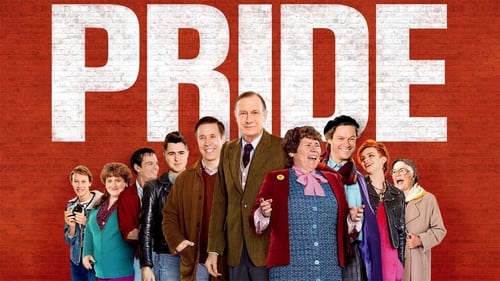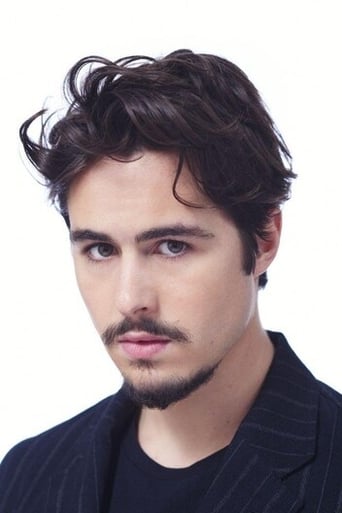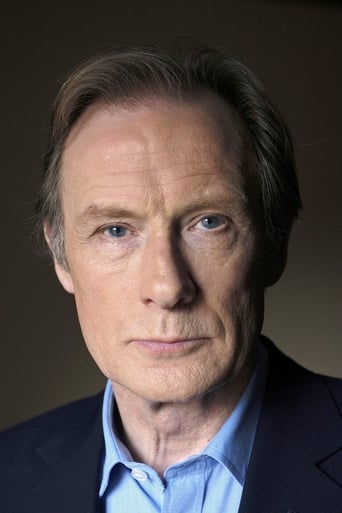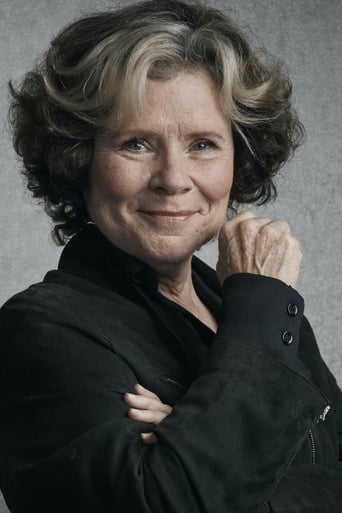Jackson Booth-Millard
When I heard about this British film, I knew it was LGBT (lesbian, gay, bisexual, and transgender) related, and critics described it as tapping the same formula as The Full Monty and Billy Elliot, I was looking forward to it. Based on a true story, in the summer of 1984, at the time of the miners' strike, Mark Ashton (Ben Schnetzer) is a gay activist, joining the Gay Pride Parade in London, and 20-year-old student Joe Cooper (Sunshine on Leith's George MacKay) from Bromley is exploring his own sexuality, he watches the parade, before becoming part of it. Soon enough Joe joins a small group of Gay and Lesbian activists led by Mark, they plan their protests and actions from bookstore Gay's the Word, run by gay couple Gethin Roberts (Spectre's Andrew Scott) and Jonathan Blake (Dominic West). Mark says that the gay community are not being harassed by the police as much, because the miners are their new targets, with many police officers violently arresting and beating them, and just like the gay community, the public and government are hostile towards them, and the subject of smear campaigns from the tabloid newspapers. Mark announces the formation of "Lesbians and Gays Support the Miners" to help raise money, many activists refuse to join, because of past experiences of discrimination and aggression from miners against the gay community. Therefore, LGSM consists of "six gays and a dyke", they start raising money immediately, and Joe is their official photographer, their actions prove successful. The National Union of Mineworkers however is reluctant to accept their support, worrying about associating with a gay group. Frustrated with the lack of response, the activists instead go directly to a mining village, they choose Onllwyn, a small mining village in Wales. They are excited to have money raised by the LGSM accepted, but spokesperson Dai Donovan (Paddy Considine) comes to London, where he discovers they are a gay and lesbian group, he admits to never meeting gay people before, to which Mark responds he has never met a miner before. Dai quickly realises the importance of the alliance between the two communities, he is asked to give a speech at the local hall, the gay and lesbian crowd are sceptical and hostile at first, but with an eloquent speech, he wins their hearts and minds. Siân James (Jessica Gunning), starting volunteering at the community centre, overhears the Women's Support Group debating whether to invite LGSM to their village, despite her husband Martin (Rhodri Meilir) urging her not to make herself stand up, she speaks out to invite the LGSM, and she becomes a member of the Women's Support Group. It is soon clear some are unwilling to let the gays come over, Maureen Barry (Lisa Palfrey) vehemently opposes the gay and lesbian support. When the LGSM arrive in Onllwyn, they are met by a silent and hostile crowd, and Mark's clumsy speech does not improve the situation, with many walking out. The next day, the LGSM are taken sightseeing around the countryside by Siân and Cliff Barry (Bill Nighy), in the distance they see police arresting more miners, a form of harassment against the miners, Jonathan says to Siân they are doing it unlawfully. The miners celebrate their release at the community centre, following Siân barging into the police office to demand they be freed, most miners now regard the LGSM as allies. That evening at the community centre, the gays and lesbians feel the sense of community among the villagers, letting go of their own prejudices against the miners, Mark announces that the LGSM will organise a spectacular fundraising event, to make the government meet the miners' demands, but there is no idea yet. Maureen Barry, bitter about the miners and support groups embracing the gays and lesbians, contacts a tabloid about the LGSM, the next day the police show up, and The National Union of Miners urges the Onllwyn support group to sever ties with the LGSM. Mark and the group read the newspaper headline, being called "perverts", they decide to adopt this term, and create a music festival event, titled "Pits and Perverts", taking place at the Electric Ballroom in Camden Town. At first no record label is willing to have their artists play at the festival, but eventually they secure Bronski Beat, members of the Men's and Women's Support Groups from Onllwyn and other villagers show their interest and come to London, and the festival is a huge success. The next day there is supposed to be a meeting, but when it is rescheduled, and the LGSM arrive late, ties with the support groups are severed, Cliff and Martin, lacking the eloquence of Dai, could not stand up for them. Siân and the other women confront Maureen, she believes the LGSM were only supporting the miners for their own gay rights agenda, but Siân shows the thousands raised by at the festival, they use it to buy a red van, driven by Hefina (BAFTA nominated Imelda Staunton), to transport the miners to protest rallies. In March 1985, the Miners' Strike ends, the miners of Onllwyn go back, Joe sees them off, Mark has alienated himself from the LGSM, after a personal crisis over his fear of contracting HIV, he confronts Joe about hiding his homosexuality from his parents, Joe eventually confronts his parents and makes his own choice to leave them. The LGSM and Lesbians Against Pit Closures attend the 1985 Gay Pride Parade, the LGSM are disappointed at first about not being allowed political signs, but the red van shows up, and several of the villagers join to support them. The parade organisers tell them to go to the front, as there are too many people, including hundreds led by the National Union of Mineworkers. In the end, in 1986 the Labour Party incorporated rights for gays and lesbians in their party programme, due to pressure from the National Union of Mineworkers, and the end text says what many of the characters did next. Also starring This Is England's Joseph Gilgun as Mike, Matthew Flynn as Tony Cooper, Freddie Fox as Jeff Cole, Liz White as Margaret Donovan, Monica Dolan as Marion Cooper, Harry Potter's Jessie Cave as Zoe and Russell Tovey as Tim. The cast are all well chosen for their parts, with many of these kinds of films, it is funny, moving and dramatic in the rights places, it has a great witty script full of terrific one-liners, a splendid soundtrack of songs, and it has many feel-good moments in amongst the realistic and powerful serious points, all together it is an enjoyable historical comedy drama. It won the BAFTA for Outstanding Debut by a British Writer, Director or Producer for writer Stephen Beresford and producer David Livingstone, and it was nominated for Best British Film, and it was nominated the Golden Globe for Best Motion Picture - Comedy or Musical. Very good!
Michael Cooper
Writing a light-hearted comedy-drama based around the homophobic politics of the 1980s and the UK miners' strike might sound like a concept doomed to failure. But Pride miraculously pulls it off, and in spectacular fashion at that. Directed by Matthew Warchus and written by Stephen Beresford, the film derives from the factual story of a group of lesbians and gay men in the 1980s, who raised funds for Welsh miners in an attempt to achieve solidarity. Surprisingly, despite the air of negativity that was prevalent during the decade in which it is set, Pride manages to maintain an upbeat and inspiring tone, without conveying itself to be preachy, which is something of an accomplishment. The feature centres on 20-year-old closet homosexual Joe (George MacKay). During his first visit to a gay pride march in 1984, he becomes inaugurated into a group of gay and lesbian activists led by Mark Ashton (Ben Schnetzer), who decide to support Welsh miners in an attempt to persuade them that they are on the same side, thereby forming 'LGSM': Lesbians and Gays Support the Miners. Before long, the group members find themselves in a traditional Welsh village to convince the local community that they demand similar from the government. However, events take an awry turn as one bigoted member of the community is hell bent on sabotaging their efforts. The majority of the comedy derives from the interactions between the gay characters and the villagers. Menna Trussler is particularly memorable as Gwen, an elderly lady whose interactions with the lesbian characters are not only hilarious but also strangely endearing. Needless to say, of course, Imelda Staunton and Bill Nighy shine in their roles, but it is the younger, main lesbian and gay ensemble that shines the brightest. MacKay and Schnetzer are perfect in their leading roles, and the acting, on the whole, is near-flawless. Pride is particularly commendable for its even-handed delivery of what is essentially a comedy on one hand, and a profoundly emotional drama on the other. It surprisingly refrains from enforcing a preachy one-sided anti-Thatcher commentary, essentially avoiding the subject of politics altogether. Instead, Beresford focuses predominantly on the personal and interpersonal exploits of the mostly fictionalised ensemble and, for the most part, succeeds. Gethin's (Andrew Scott) storyline, which involves his reuniting with his mother, is especially noteworthy in this respect, though it could be argued that it relies too heavily on a common 'gay-themed' plot to induce an emotional response. Likewise, Joe's clichéd 'coming out' storyline feels somewhat old and tired, but Beresford's varied and compelling use of characters, combined with Warchus' fast-paced direction, enables the film to maintain a semblance of freshness. It's nothing unique, but it's well-written, thoroughly engaging and ultimately uplifting. However, for a film that relies heavily on its characters and their circumstances to convey a touching and uplifting story, the emotional aspects of the film are at times surprisingly underplayed. The character of Joe, for example, though presented initially as the protagonist, is disappointingly obscured and overshadowed by the LGSM ensemble throughout the majority of the film, despite his particular storyline bearing the most potential in terms of poignancy. Consequently, this poignancy is never truly realised and his overall underuse makes the film's angle appear uncertain from the outset. Despite this, the film nonetheless maintains a feel-good tone that's full of heart, and makes a profound statement as a firm indication of the progression we've witnessed in the acceptance of LGBT people and their rights since the source basis of this feature. Sadly, the film's few shortcomings preclude it from being regarded as a masterpiece. That said, in spite of its flaws, Warchus' home-grown feel-good feature is undoubtedly a film to be proud of.




















